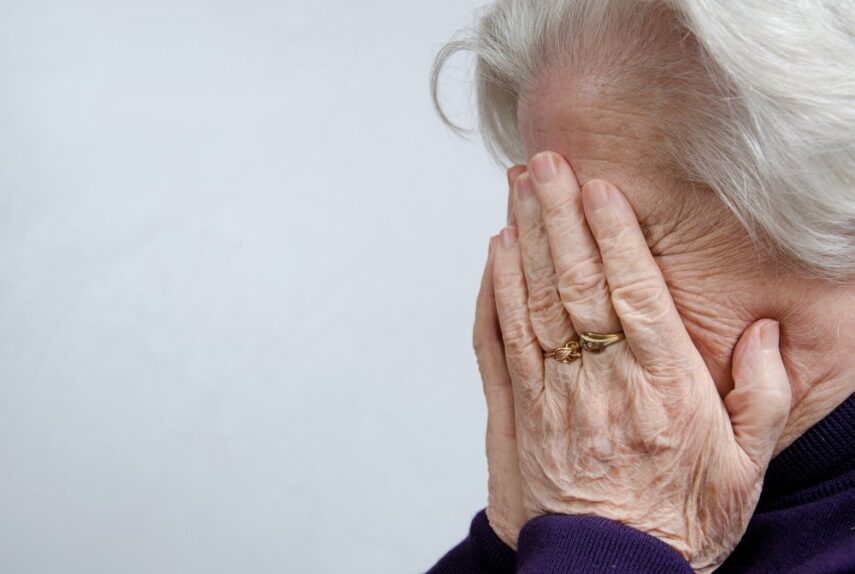Many nursing facilities fail to offer elderly and dependent persons compassionate and thorough care in a safe atmosphere. Abuse in nursing homes can result in physical and long-term psychological harm.
Abuse in nursing homes can be difficult to spot, and many occurrences go unreported. Abuse and neglect are commonplace among residents with severe physical and cognitive disabilities. Most of the time, the propagators are the people charged with protecting the most vulnerable.
Establishing that the victim’s treatment was substandard in nursing home cases is crucial. The use of expert witnesses and evidence prepared ahead of time is necessary to verify this.
FLORIDA STATUTE ON NEGLIGENCE CLAIM IN NURSING HOMES

You should not hesitate to contact a Miami nursing home abuse lawyer if you suspect that a loved one is being abused. To find out if a nurse cared for your loved one has been abused, you should alert the authorities and contact a nursing home abuse lawyer in Miami.
The requirement to file a Civil Lawsuit within the Limitation Period is one of the most critical parts of doing so. Civil lawsuits for nursing home abuse must be filed within two years of the discovery of the abuse.
Make sure the lawsuit is filed before the statute of limitations expires by contacting an experienced Miami lawyer from DDR Legal Firm.
A potential plaintiff must conduct precise procedures to collect details about their injuries and use them as evidence in a lawsuit before filing a claim. It is imperative to document the testimony of any witnesses.
A Breakdown of the Types of Abuse in Nursing Homes
Several types of abuse can occur to dependent adults and elders in Nursing homes, according to the National Center on Elder Abuse:
- Abuse of physical power – Physical abuse is any violent behavior that results in injury or bodily harm. Intentional physical abuse includes striking, slapping, punching, kicking, shoving, forcing food down someone’s throat, and pinching; unintentional abuse includes neglect, excessive use of restraint, and disregard for bodily needs.
- Sexual Abuse – Any unwanted sexual contact qualifies as sexual abuse. It encompasses rape as well as coerced nudity and unwelcome sexual contact. Sexual exploitation is common among residents with cognitive impairments, such as dementia sufferers.
- Abusive Psychological Experiences – The resident may be yelled at, criticized, subjected to humiliation, or shamed. The behavior of such abuse victims may change.
- The exploitation of financial resources – Any type of theft or economic exploitation of an elderly resident is financial exploitation. It involves actions like taking control of a patient’s finances without authorization, stealing directly from his accounts, asking for credit on his behalf, applying for security, and making false claims for medical care.
- Intentional or Unintentional Neglect – Lack of staffing frequently leads to inadvertent neglect. Care for a patient’s basic requirements, such as personal cleanliness, food, clothing, water, sanitation, medical attention, and human interaction, is considered neglect.
The perpetrator of the abuse is typically a nursing home employee. However, there are several instances where other facility users, including guests and fellow residents, are the abusers.
A RECOVERY FOR ABUSE VICTIMS IN A MIAMI NURSING HOME.

Depending on the nature of your or loved one’s injury, you may be entitled to compensation for the following:
- Future and past medical costs, including rehabilitation and mental health services.
- Theft of money and property.
- Suffering and mental anguish
- Fees for legal representation.
- Suffering and Pain
Both nursing home personnel and nursing homes could be held responsible in a nursing home abuse or neglect lawsuit. The nursing facility would be liable for its workers’ activities under the vicarious liability doctrine.
Which Florida Civil Laws Cover Nursing Home Negligence Claims?
If you are facing charges for nursing home neglect, you may need the assistance of several sets of laws:
Florida Nursing Home Bill of Rights – By enacting Florida Statute 429.281, the State of Florida adopted the Nursing Home Bill of Rights. Each person’s rights when residing in a care facility are expressly stated in this document.
An individual has the right to live without suffering from financial, emotional, mental, or physical abuse. In many cases, they can access the services needed to preserve their health and wellbeing. Furthermore, they can handle their own financial matters and voice complaints without fear of reprisal.
United States Nursing Home Care Standards – Federal standards of care are enforced in nursing homes. Assessment of functionality, quality assurance, and written care plans are mandated by the federal Nursing Home Reform Act, 42 U.S. Code 1395i-32. Non-compliance with the rules and lying have clear consequences.
Florida Civil Negligence Laws – Cases involving nursing homes are covered by laws that permit negligent victims to claim monetary compensation. Everyone in society has a responsibility to act morally and without harming others, as stated in Florida law 768.813.
That threshold is extremely high when a person is committed to the care of another person.
When someone, or perhaps a group of people, is in charge of another person’s care, abuse and neglect are examples of negligence. There is a right to file a lawsuit when one has been wronged by someone else. The person can request financial compensation for the losses they have suffered as a result of the wrongdoing.
Florida Criminal Laws – Neglect in a nursing home may, in some situations, constitute a crime. Florida law 825.1024 makes it unlawful to abuse an adult who is elderly. Elder abuse cases may also involve offenses including violence, battery, and deception. A person may occasionally be held accountable for a crime by abusing or neglecting an older, even though a civil remedy is also available.
What Should You Do if You Consider a Care Facility to Be Negligent?

There are numerous actions you can take if you believe a care facility is negligent:
- Inform the police about the situation.
- Get in touch with Adult Protective Services.
- Send an official complaint to the Agency for Health Care Administration.
- Sue to make the care provider answerable and demand money damages
Related Posts:
- How To Find A Good Personal Injury Lawyer - 2024 Guide
- 5 Crucial Steps to Help You Win Your Personal Injury…
- Why You Should Hire A Personal Injury Lawyer To…
- 10 Reasons Why You Didn't Win Your Personal Injury Case
- 10 of the Most Common Personal Injury Cases
- Why You Need To Appoint A Truck Accident Personal…







